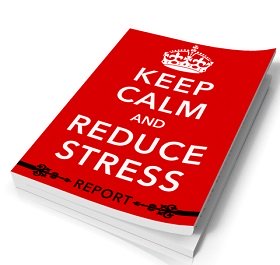Adolescent Anger Management Strategies for Parents

Adolescent anger management is a part of parenting that is not pleasant but often necessary at some point as your children grow. Teens talking back, slamming doors, or engaging in an all-out temper tantrum can occur even in the happiest of homes.
As children mature into teens and young adults, their bodies are experiencing major hormonal changes that can result in dramatic mood swings. Try these strategies we found helpful with our family.
Keep Lines of Communication Open
There were a few times when my son would become so angry that we would have to help him regain control. The first thing to remember is to keep lines of communication open and stay calm. We wanted him to know that being angry is a normal emotion but it is important to learn how to control this emotion so it does not control him.
By realizing that my son's anger is a normal and healthy emotion--if used correctly, we took the first step in successful adolescent anger management. Next, we gave him time to regain control and gather his thoughts. It made it easier to talk about the incident with a more objective perspective. Talking together and verbally describing his anger helped diffuse the situation.
Being able to listen is another important component of effective communication. Listening to your teen sends the message that his opinions and feeling matter to us, even if we do not always agree. Listening allows the parents to demonstrate respect and understanding for your teen. It shows a willingness to see things from his point of view.
Keep Your Teen Healthy
A nutritious diet, plenty of sleep and regular exercise are important for teens who are experiencing growth spurts, hormonal changes and mood swings. Maintaining a healthy lifestyle also provides much needed energy for our over-scheduled teens and helps combat stress. Even with crazy schedules, help your teens develop healthy eating habits and carve out time for exercise. People who exercise regularly and eat well have the ability to stay calm and not overreact to life's setbacks that occur.
Help Your Teen Manage Time Better
Teens are busy, and can sometimes feel overwhelmed. They can be stressed by an overload of commitments. Poor time management contributes to this feeling. Both of our teens needed help with time management skills, schedule planning, and setting priorities. They wanted to include school, athletics, music and socializing into their daily schedule. It hardly left time for eating and sleeping.
We found that when our teens were rushed and their schedule became overcrowded, they could have anger outbursts. We worked with our teens to maintain a realistic schedule. Learning how to manage time effectively is a great way to avoid the adolescent anger management issue.
Help Your Teen Learn from Mistakes
After the anger incident, we worked with our teen to think about what had happened and what caused it to occur. By taking an objective look at the situation together, we could identify why our teen got angry. Sometimes things happen that make us mad, but there also may be triggers (sometimes call hot buttons) that can provoke an anger outburst.
We helped our teen identify his hot buttons. These were specific things that bothered him. Over time, he developed strategies to avoid things that triggered his anger. He also considered what reaction he could have that would not produce anger if the trigger occurred so that he could have a more appropriate reaction next time.
Adolescent anger management is an ongoing challenge in many households, but with these strategies you may find that living through teenage adolescence doesn't have to be quite so challenging.
Resources to help teens with anger, stress and anxiety
Join Calm Starts Here, and receive FREE How to Get a Good Night's Rest and Stop Worrying.
Important Article for Parents to Read
CD Store


Share this Page on SheToldMe.com
Become a FaceBook Fan






